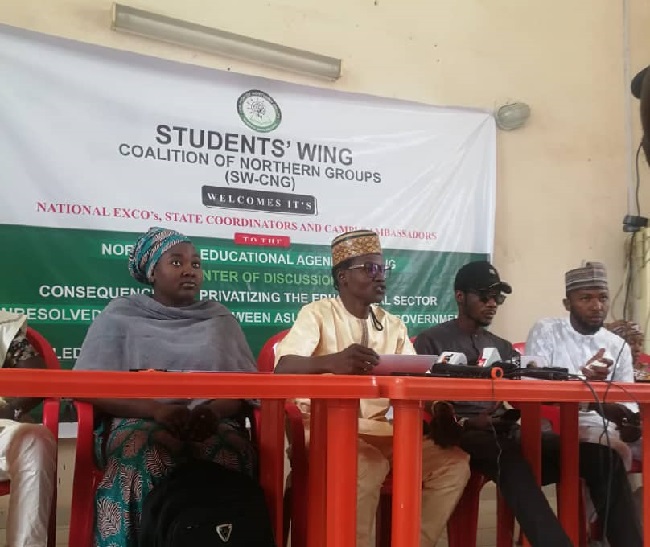THE Coalition of Northern Groups students wing (CNG-SW) has condemned in strong terms the introduction of N100,000 weekly limit withdrawal to customers by the Central Bank of Nigeria (CBN) from next year, describing it as a measure capable of worsening the harsh economic situation the teeming masses were presently facing.
This was just as the body also vehemently described any further move to privatise tertiary education in Nigeria as another unacceptable, unpatriotic exercise in futility that must be resisted by students and their parents
Reading a communiqué signed by the communiqué chairman, Alhaji Bello Mohammed Aliyu, held at the Bayero University Kano on Saturday, before the pressmen, said most actions being taken by the present administration were making life unbearable for the masses.
Alhaji Aliyu disclosed in the communiqué that “all national executives, all state coordinators and campus ambassadors of the Coalition of Northern Groups, students wing CNG-SW met in Kano State from the 16th to the 17th of December and discussed critical national questions around educational security, ASUU and CBN’s controversial monetary policies as they potentially affect Northern Nigeria and Nigerian students of higher institutions generally
The communiqué stated that “The retreat hereby condemns in the strongest terms, the insistence by the Central Bank of Nigeria Governor, Godwin Emefiele on enforcing the imposition of a regime of harsh financial management policies.”
Commenting on the alleged privatisation of tertiary institutions, the group described it as a deliberate attempt by the government to abdicate its responsibility for providing quality, accessible and affordable education to citizens.
“We note also that in addition to the devastating insecurity and attendant negativities on the education system, Nigerian leaders are experimenting with ill-advised ideas, programs, and approaches to privatise tertiary education and complete the crippling of the system.”
“The retreat wondered the kind of life university lecturers are made to go through without being paid their basic entitlement for over eight months.”
WATCH TOP VIDEOS FROM NIGERIAN TRIBUNE TV
- Let’s Talk About SELF-AWARENESS
- Is Your Confidence Mistaken for Pride? Let’s talk about it
- Is Etiquette About Perfection…Or Just Not Being Rude?
- Top Psychologist Reveal 3 Signs You’re Struggling With Imposter Syndrome
- Do You Pick Up Work-Related Calls at Midnight or Never? Let’s Talk About Boundaries






